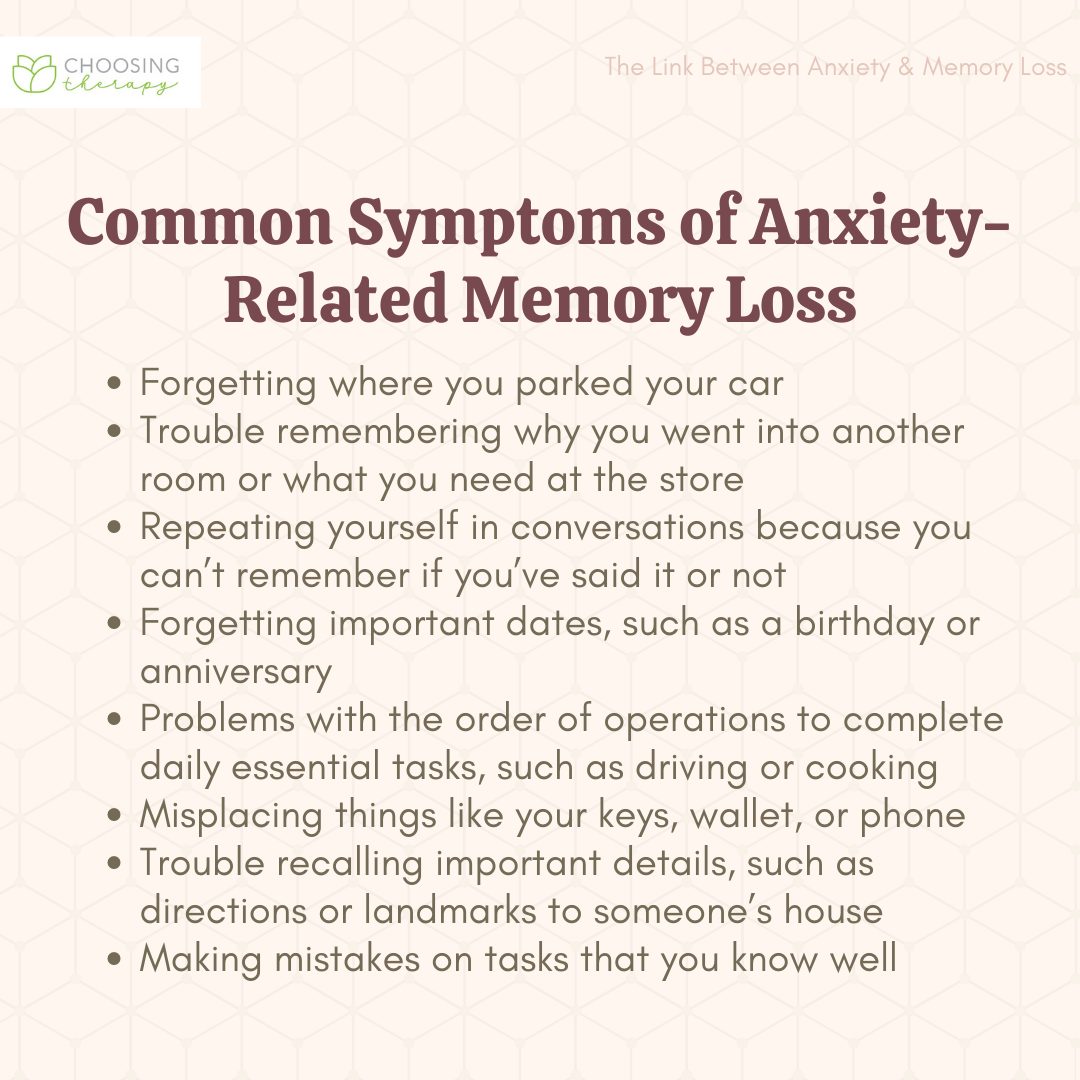Anxiety is a normal reaction to stress. It is not entirely harmful, but can actually help in some situations. For example, when you are in danger, anxiety alerts you and prepares you to deal with it. However, when anxiety becomes excessive or long-lasting, it can develop into a mental problem – anxiety disorder. This disorder is one of the most common mental health problems in the world, with nearly 30% of adults experiencing the effects of anxiety at least once in their lifetime.
Anxiety not only affects mood and behaviour, it can also have a profound effect on the body, particularly our nervous system. The nervous system is, after all, responsible for key functions such as memory and learning. So when we are in a state of anxiety for a long period of time, our memory may be affected, leading to memory loss. So how is anxiety linked to memory loss? Let’s take a step-by-step scientific look.
What is a stress response?
To understand how anxiety affects memory, we need to first understand the “stress response”. The stress response, also known as the “fight or flight” response, is a protective mechanism that evolved in humans to help us quickly respond to life-threatening situations. Our bodies trigger this response whether there is a real danger or simply a perceived potential threat.
According to research by Harvard Health Publishing, the stress response begins in the brain. When you perceive a danger, your eyes or ears send signals to the brain’s emotion processing center (the amygdala). This area analyzes the images you see or sounds you hear to determine whether they are threatening. If the verdict is danger, a signal is sent to the brain’s command center (the hypothalamus).

A series of physiological changes then take place within a short space of time: adrenaline is released into the bloodstream, the heart rate increases, the blood pressure rises, breathing quickens and the senses become more acute. If your brain still feels that the danger has not passed, it continues to secrete a hormone called cortisol. Cortisol is the body’s main stress hormone and acts as a built-in alarm system, controlling our emotions, motivation and sense of fear.
Put simply, the stress response is like the accelerator pedal, which puts the body into a state of high alertness. But if the threat passes, or if it never existed, your body gradually returns to normal, like a brake. However, if you mistakenly believe that the threat is still present, or if you overreact to something that is not serious, then the body will remain in a state of constant tension, which can have a negative impact on physical and mental health.
The relationship between stress response and memory
One important function of the stress response is to help us remember relevant information when faced with a threat. This has been confirmed by scientific research, but it should be noted that its effect is conditional.
A study published in the journal Brain Sciences investigated the effect of anxiety levels on memory. The researchers divided the participants into two groups: a “low anxiety” group and a “high anxiety” group, but none of them had a clinically diagnosed anxiety level. They asked the participants to complete tasks, such as answering questions about the spelling or meaning of words, while the words were superimposed on different types of pictures, including neutral pictures (such as houses) and negative pictures (such as scenes of car accidents).
The study found that participants with higher anxiety levels were more likely to remember words that appeared on negative pictures. Myra Fernandez, co-author of the study, explained: “Their memories were more emotional and therefore easier to remember.” In other words, moderate anxiety can help us remember important information more deeply, especially those with emotional impact.
However, there is a ceiling to this benefit. Researchers note that while a certain level of anxiety can enhance memory, once anxiety exceeds a certain threshold, it can in turn impair memory. Excessive anxiety can leave the body exhausted, depleting energy resources that would otherwise support cognitive functions, ultimately leading to a decline in memory.
Long-term anxiety impairs memory
When anxiety persists for an extended period of time, or is too intense, it can have a wide range of effects on physical and mental health. Prolonged stress can lead to physical problems such as headaches and breathing difficulties, and even increase the risk of high blood pressure, heart disease and stroke. It can also have a negative impact on mental functions, especially memory.
A study published in the International Journal of Geriatric Psychiatry showed a strong correlation between anxiety disorders and memory decline. The study further suggests that anxiety may be an early warning sign of future cognitive decline, and may even predict more serious cognitive impairment.
Specifically, people suffering from generalized anxiety disorder (GAD), panic disorder, agoraphobia or other specific phobias are more likely to experience memory problems. For example, data from behavioral therapy shows that people with severe GAD often have difficulty recalling childhood attachment experiences compared to the average person. This may be because they experienced some traumatic events during their childhood, such as a lack of security or a lack of protectors, and these experiences may have been suppressed, affecting their memory ability.
How can anxiety be relieved to protect memory?
Since anxiety can have a negative impact on memory, relieving anxiety is obviously an important step in improving memory. Here are some practical methods:
1. Learn to relax
Try to relax your body and mind through deep breathing, meditation or yoga. These methods can help reduce cortisol levels and reduce the body’s stress response.
2. Exercise regularly
Not only does exercise improve physical health, it also encourages the brain to release feel-good chemicals such as endorphins. This helps to relieve anxiety and also improves memory.
3. Seek professional help
If anxiety is affecting your daily life, it is advisable to consult a psychologist or therapist. They can help you to reduce anxiety by retraining your thinking patterns, for example through cognitive behavioural therapy (CBT).
4. Establish healthy habits
Getting enough sleep, eating a balanced diet and maintaining a regular routine are all fundamental to maintaining brain health. Avoid excessive caffeine or alcohol, as these substances can exacerbate anxiety symptoms.
Summary
Anxiety is not inherently bad; it is a natural response to stress. However, when anxiety is excessive or long-lasting, it can be harmful to our physical and mental health, particularly our memory. By understanding the relationship between anxiety and memory, we can take positive steps to manage anxiety and protect our cognitive function.
If you find yourself experiencing anxiety regularly, along with memory loss, don’t ignore these problems. Seeking help and learning to regulate your emotions and stress can not only improve your quality of life in the present, but also lay a solid foundation for your future health.

